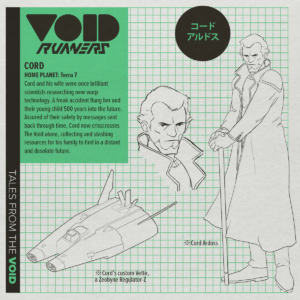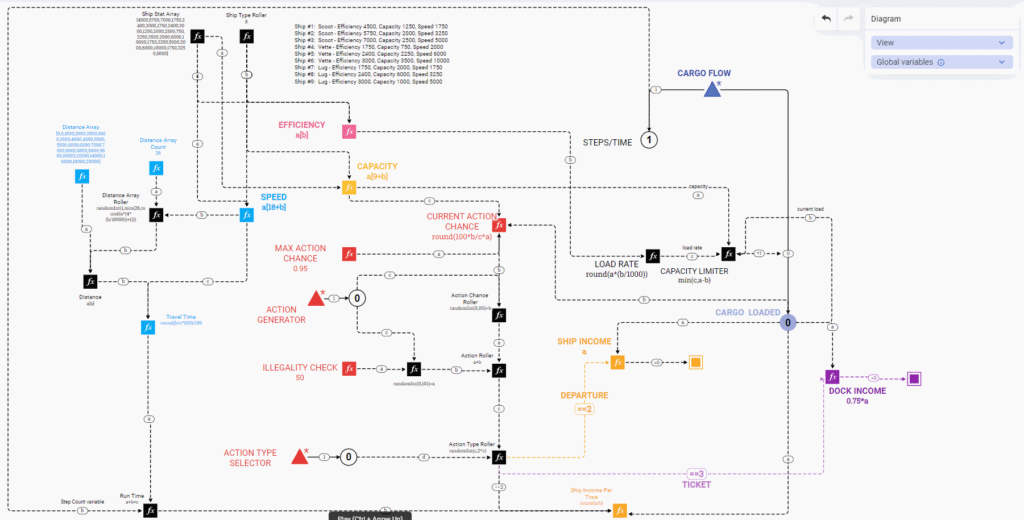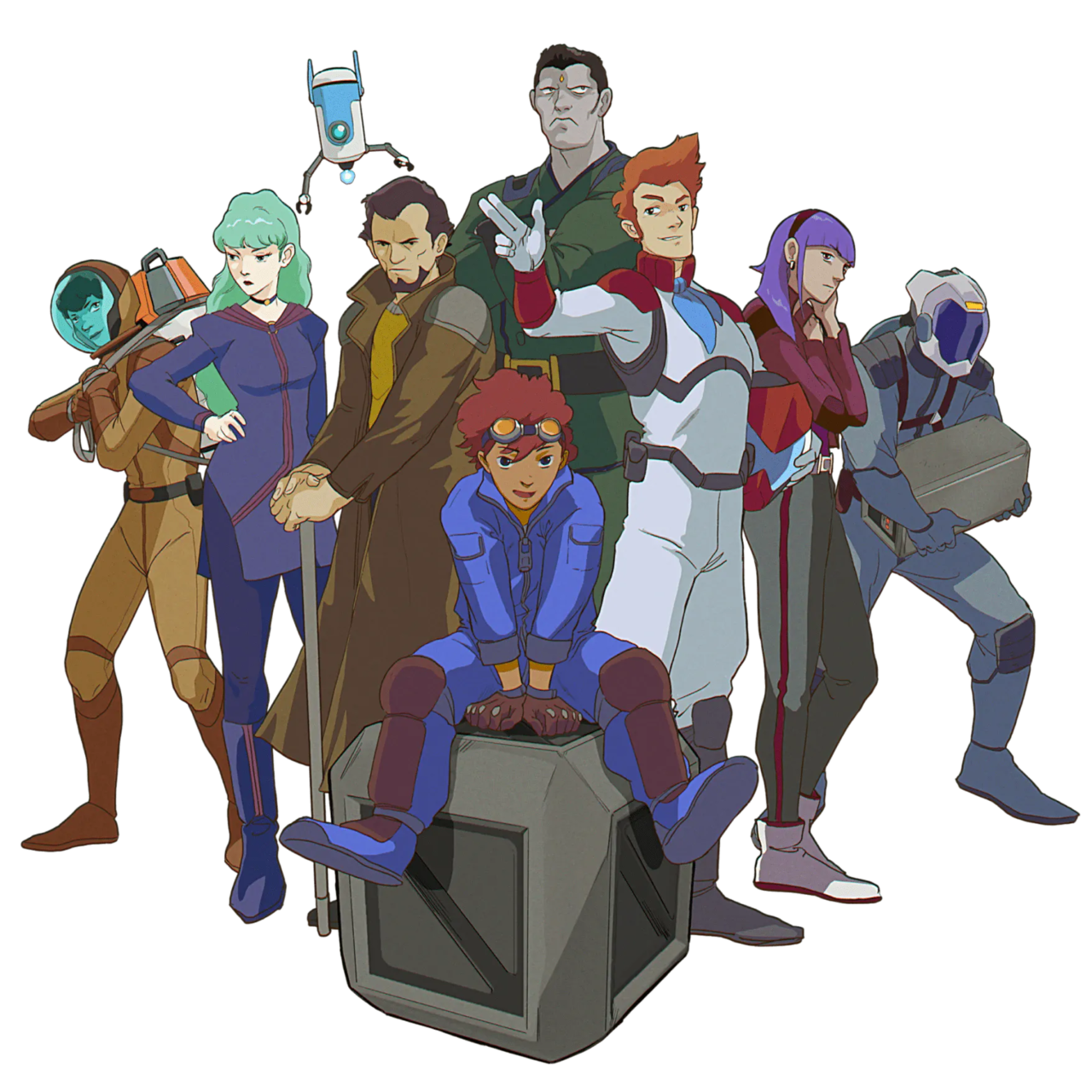
Developed on Unity, Void Runners is a blockchain game of decision-making and strategy set in the Void, a vast galaxy where trade depends on a network of Runners and Outposts. In this universe, players move cargo around, following or defying rules about where they can dock and save their loot. But there is a catch, these rules constantly change, pushing players’ luck and holding their nerves.
Spacedog works as a game designer for Void Runners but she wears many hats. Aside from doing a lot of balancing work and economy planning, she also manages the communication aspect of the game.
STUDIO: Void Runners
GENRE: Web3 Strategy Game
TEAM SIZE: 4
RELEASE DATE: Sept. 2022
Challenge
In Void Runners’ sprawling universe, ships are generated iteratively from nested lists with weighted rarity, randomly picking components from that list to build ships’ overall capability. This mechanic is great for making unique ships that look cool, but there’s also a risk that players end up with an unbalanced collection of ships in terms of gameplay.
In this very dynamic setup, the team needed to:
- Make sure that ships’ earning ability is where they want it.
- Predict outcomes in a situation where the rules are changing all the time,
- Test and monitor these outcomes against potential player decisions.
“That would be a nightmare in a spreadsheet because you need to run a lot of iterations to really see the impact of small changes”
Solution
As a seasoned Game Designer, Spacedog, tried Machinations a long time ago when Machinations was still early in its development. When she started working on Void Runners she decided to really deep dive into Machinations.
“I spend a lot of time in spreadsheets, but I’m constantly trying to use them for things that they’re not really designed for. And so I could see immediately that there was a huge amount of potential in the approach that Machinations was taking in”
Spacedog learned to use Machinations by watching our webinars and deconstructing game economies of other franchises that she was familiar with. She also found help within Machinations community, by looking at and playing with existing diagrams. From then, she started to build her own models.
“Tweaking and evolving things in existing community diagrams is a really good way to learn Machinations. I’ve also watched your videos and sat in on some of your webinars. Those presentations have been very helpful”
Results
Using data from Unity that she pulls straight back into Machinations, Spacedog can simulate her game economy and generate play data for hundred of spaceships to pull relevant stats out of the simulation and predict ships’ performance.
“The Machinations team talks a lot about Monte-Carlo simulations, and I think some people don’t understand what a big deal that is. I could run spreadsheets that do a lot of simple randomization, but they’re nearly always individual use cases. Machinations lets me easily simulate stacks of naturalistic randomized outcomes so I can find outliers and feedback loops”

This model shows the core gameplay loop: Each ‘run’ the simulation chooses a Ship with sample stats, which travels to and docks at an Outpost, where it receives Cargo over time. Successive rule changes come into play, and both Ship and Outpost owner have an escalating chance of taking action of the Ship becomes illegal.
The team is using Machinations all the way through the stack, keeping records of their batch plays and dumping outputs out to Google Sheets to have an easy way to archive and monitor progress between balance passes.
“Another big change for me with Machinations has been regarding archiving and records keeping. Being able to model that sequential randomness and then record those results has been a big shift in my workflow”
Being a visual tool, the team is also using Machinations as an aid to communicating with their player base and investors:
“The tool is really helpful in getting people who are strangers to game design to understand how our game works, In that sense, Machinations becomes a communication tool in a way that a spreadsheet never could. It’s really a new paradigm and I feel like I’ve been waiting for it for 20 years!”
Ready to boost your game design process?
Get Started for Free

